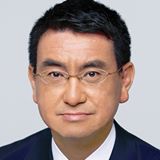CleanTech Alliance asked Andrew Crowder to summarize Japanese Member of Parliament Taro Kono’s presentation on Japanese Energy Challenges after Fukushima. In addition to being an International Trade Specialist with the Washington State Department of Commerce, Andrew is deeply familiar with Japan as a former resident. The following story is his recap.
By Andrew Crowder
International Trade Specialist
Washington State Department of Commerce
|
Taro Kono, Member of |
On Monday, January 26, 2015, at Kane Hall on the University of Washington Campus in Seattle, Japanese Member of Parliament Taro Kono gave a talk titled: "Japanese Energy Challenges after Fukushima.”
Taro Kono is a member of the Liberal Democratic Party of Japan. He is currently serving his sixth term in Japan’s House of Representatives. The issues he has championed are largely consumer / stakeholder oriented: pension reform, GMO labeling, reduction of greenhouse gas emissions and organ donor procedure reform, in addition to his opposition to nuclear fission.
Kono’s message was simple: The Fukushima disaster is causing Japanese society to seriously re-examine the role of nuclear fission in its energy balance. Kono’s position is that conventional nuclear power is no longer economically feasible in Japan; that it faces serious technical challenges; and that it creates foreign policy challenges.
Most of Kono’s argument was based on the nuclear fuel cycle: the supply of uranium is limited; storage of spent fuel is problematic; reprocessing spent fuel and extracting plutonium from it is problematic; and given that Japanese plans for a fast-breeder reactor keep slipping, utilizing existing Japanese stocks of plutonium is problematic. Kono gave critical insight into the selection of generation technologies by Japanese utilities when he let his audience know that Japanese utilities are permitted to set power rates so that utilities can recoup 100 percent of the costs of generation (including asset construction and depreciation) plus a three percent margin, creating an incentive to choose the most expensive generation technologies. Kono’s presentation was serious, lively, and sometimes funny.
Mr. Kono’s proposals for a new Japanese energy structure are:
-
Immediate halt to nuclear fuel reprocessing
-
Decommission all of Japan’s nuclear fission plants within 40 years
-
Deregulate Japan’s energy market
-
Find alternative supplies of natural gas
-
Maximize energy efficiency
-
Increase the use of renewables, particularly geothermal energy
-
Reduce reliance on fossil fuels
Opportunities for Washington companies certainly exist in energy efficiency, energy storage, grid management and technologies for renewable energy generation.
Mr. Kono’s talk was sponsored by the University of Washington Japan Studies Program, which is part of the Jackson School of International Studies, and his talk was made possible by the Mitsubishi Corporation as part of its ongoing lecture series at the University of Washington.
Video of Mr. Kono’s presentation will be posted to the following link when available: https://jsis.washington.edu/japan/videophoto.shtml.
